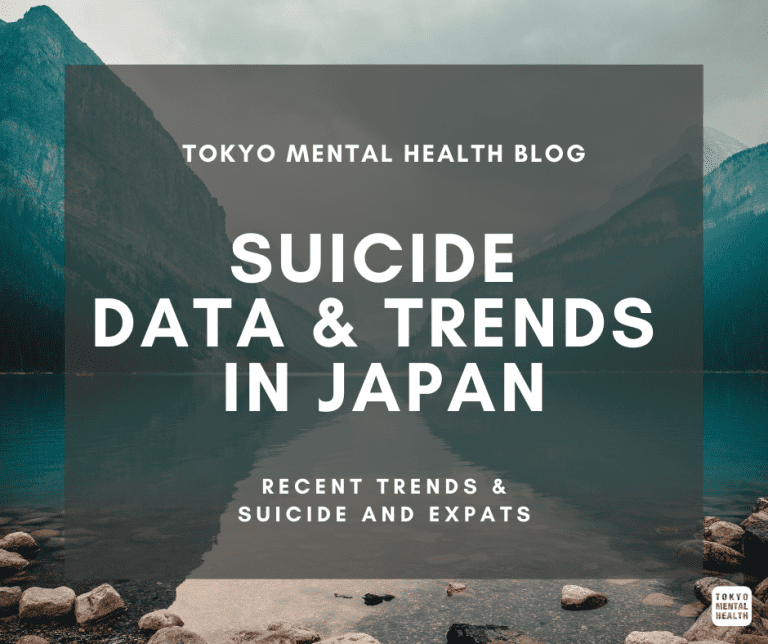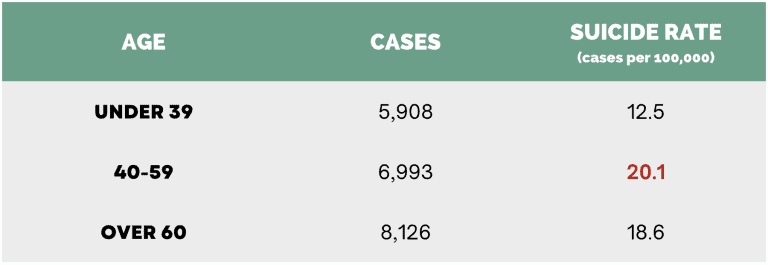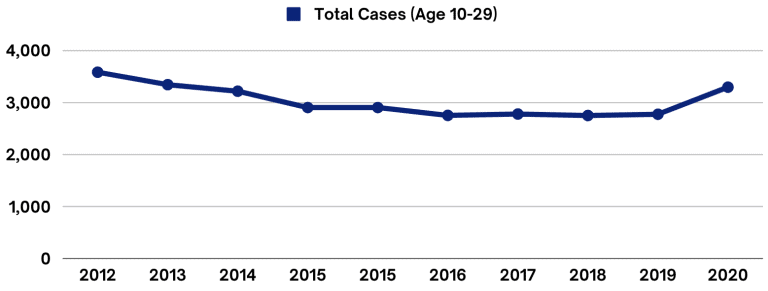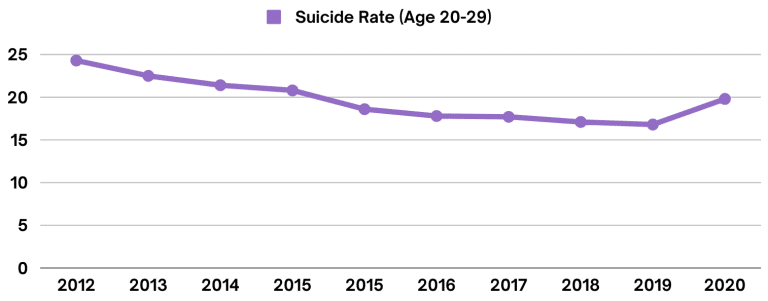- 2022/03/30
- Health Conditions

Concerned about someone with suicidal thoughts or having suicidal thoughts yourself?
If someone you know is exhibiting warning signs for suicide, don’t be afraid to ask if he or she is depressed or thinking about suicide. Listen without judging and if possible, encourage them to seek professional help.
If you have suicidal thoughts, know that you are not alone. Also, know that help is available 24/7. Call your healthcare provider, go to the emergency room, or call a suicide prevention lifeline. Several are available in Japan, both in Japanese and in English. Lifelines are also available in the United States and the United Kingdom.
Recent Trends in Japan
Suicide remains a significant social issue in Japan. In 2020, 21,081 people died by suicide, the first increase in 11 years likely due to the health, social, and economic issues caused by the COVID-19 pandemic. A WHO report in 2018 indicated that Japan’s suicide rate (suicide deaths per 100,000 people) of 18.5 was the highest among the G7 member countries and the 9th highest among all nations.
Here are more specific data and trends regarding suicides in Japan taken from Japanese official statistics.
Overall trends
- The suicide rate in Japan increased by almost 35% between 1997 and 1998, thought largely to be due to the financial crisis following the collapse of the bubble economy.
- Since 2009, the suicide rate decreased every year until 2019 to the pre-1998 level.
Gender
- In recent years in Japan, about twice as many men died by suicide as women. This pattern is also seen in other countries where data is available.
- With that being said, Japan’s suicide rate among women is high (10.8 per 100,000 people in 2015) compared to other developed countries. In 2018 WHO report, no other G7 country had a female suicide rate higher than 7.0 per 100,000 people.
- Although the official number isn’t reported in the Japanese data, suicides in the transgender community should not be overlooked. Trevor Project and several other organizations are dedicated to suicide prevention and crisis intervention for this community.
Age
- While the count was fairly evenly spread among age groups, roughly one-third of suicides in 2020 (6,993 / suicide rate of 20.1) were completed by people between ages 40 and 59.

- Suicide among youth is an emerging issue in Japan. The suicide rate among youth consistently fell from 2010 to 2018 across Japan but in 2020, the country experienced a 19% increase in suicides among individuals ages 10 to 29, an increase of 2.2 deaths by suicide per 100,000 young people per year (the suicide rate increased from 11.7 to 13.9 per 100,000). There is speculation the sudden rise may be related to the impact of the COVID-19 pandemic. By comparison, the suicide rate of youth increased in the United States by 2% across the same period.


Occupation
- During the last 10 years, suicide by people in unemployment accounted for more than 50% of the total cases, implying a potentially important relationship between unemployment and suicide.
- It is worth noting that in 2020, suicides by students increased by 17% and exceeded 1,000 for the first time since 2011 (approximate suicide rate of 5.0 per 100,000 people).
Month
- In recent years, suicide cases have a tendency to peak in March, as well as some increase in May and October. During the past five years, the suicide rate in March (7.67) was 10% higher than the monthly average of 6.98. Due to this trend, the Japanese government sets March as a suicide prevention month (自殺対策強化月間) and has implemented various policies aimed at reducing suicides.
Mental Health
- Though data on the mental health of those who completed suicide was not available in these official Japanese statistics, we know mental disorders are a big risk factor for suicide from other research inside and outside of Japan. In one Japanese study suicide attempts among Japanese workers was highly associated with mental disorder and another study showed a relationship between annual income and mental disorder in Japan.
Suicide and Expats
In 2017, 207 “foreigners” died by suicide in Japan. Among them, Korean nationals had the highest number of cases (119 cases i.e., 57.5% of all foreign cases were among Korean nationals). Their suicide rate of 23.2 per 100,000 people was higher than the overall rate in Japan (16.0 per 100,000 people) and South Korea (23.0 per 100,000 people).
In fact, research by Gilmour, Hoshino, and Dhungel in 2019 found that Koreans living in Japan experience a higher suicide rate than Japanese people in Japan, or Koreans living in Korea. They point out that this may “reflect the special social, economic, and cultural pressures they face as a marginalized population in Japan.” These figures are, of course, affected by the definition of “foreigner” and Japan’s particular immigration policy. Interestingly, this paper suggested suicide rates for other immigrant groups may be similar to that of the local population in Japan.
Certainly, moving country and living in a different culture can be stressful for anyone. This article by Tokyo Mental Health (TMH) discusses culture shock in Japan and how to cope with it.
Warning Signs and What to Do
The National Alliance on Mental Illness (NAMI) lists some warning signs of suicide, such as:
- Aggressive, repulsive, and/or reckless behaviors
- Severe mood swings
- Withdrawal from the surrounding, including saying goodbye
- Giving away possessions, tying loose ends, etc.
- Increased and problematic use of substances
It is important that you seek help before you reach a breaking point. If you or a loved one struggles with mental health issues, please feel free to contact us – Tokyo Mental Health’s experienced counselors and psychologists are committed to supporting expats and their mental health.
Concerned about someone with suicidal thoughts or having suicidal thoughts yourself?
If someone you know is exhibiting warning signs for suicide, don’t be afraid to ask if he or she is depressed or thinking about suicide. Listen without judging and if possible, encourage them to seek professional help.
If you have suicidal thoughts, know that you are not alone. Also, know that help is available 24/7. Call your healthcare provider, go to the emergency room, or call a suicide prevention lifeline. Several are available in Japan, both in Japanese and in English. Lifelines are also available in the United States and the United Kingdom.